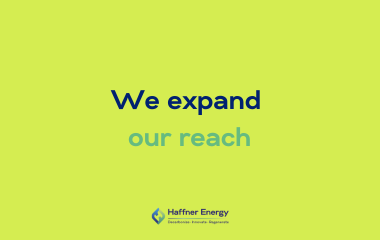
Haffner Energy: a broader positioning and a new website to better serve our addressable market in Europe and the rest of the world
Stemming from a single technology, Haffner Energy’s offering has grown steadily over the years to meet market needs and address decarbonization challenges. The company’s addressable market includes players in industry, land, air and marine mobility, as well as governments and local authorities. Haffner Energy’s offer also contributes to regenerating the planet through the co-production of biogenic CO2 and/or biochar, a natural and sustainable carbon sink.
The renewable energy production solutions we offer, based on our thermolysis technology, are designed for a wide range of uses. We can serve customers who need renewable gas and hydrogen, Sustainable Aviation Fuel (SAF), or renewable
methanol.
Consequently, we are strengthening our positioning and updating our website to better reflect the breadth of our value proposition.
The relevance of our offering and solutions is clearly reflected in our new tagline “Decarbonize, Innovate, Regenerate”. Haffner Energy’s business model is built on 30 years of experience fueled by ongoing innovation, with over 80 international patents filed and 40 projects completed for a total 600-MW installed capacity. Today we are stating our mission anew: to develop competitive, sustainable renewable energy solutions with a neutral-to-negative carbon footprint.
Through our new website, we aim to make visible and legible what we are and the unique contribution we make to the energy transition in the service of our customers. This dynamic website features an interactive platform to facilitate the thorough exploration of our biomass thermolysis technology and the various solutions it provides.
Promoting our products and services, continually adapting to new trends in the renewable energies market, and fostering the talents that make up Haffner Energy, all converge to support our goal: helping our customers accelerate their transition to “net zero emissions” and actively participate in the emergence of a decarbonized global economy, with 200 million tons of CO2 avoided by 2034.
